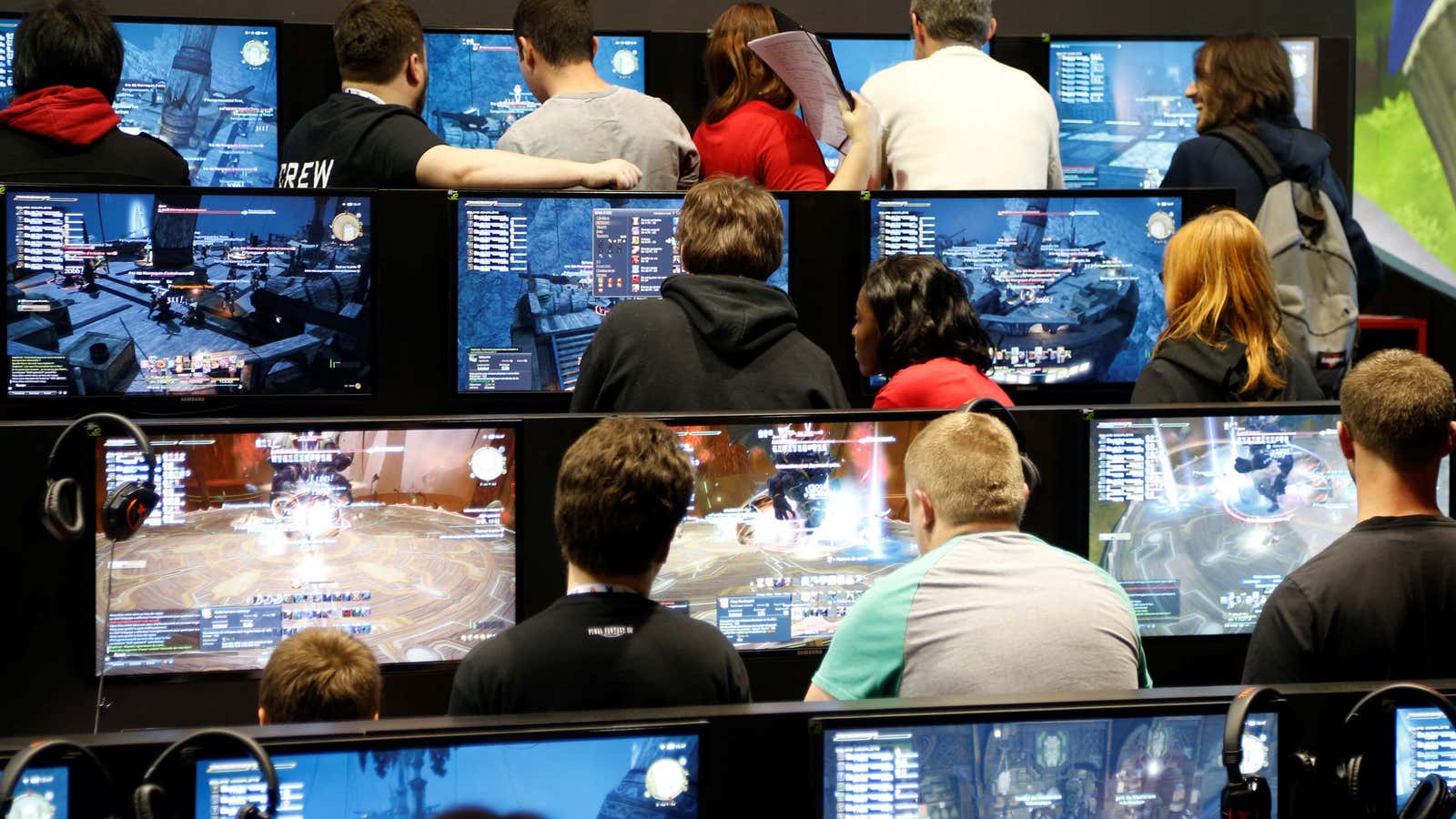The esports industry has boomed in recent years, commanding an audience of nearly 150 million people who are tuning in to watch competitive gamers. Now enthusiasts can even get a scholarship to attend college based on their skills. Across the US, 34 colleges offer competitive gaming as a varsity sport.
Newzoo, a research firm that studies e-sports, estimates that the industry brought in revenues of $493 million globally last year, and predicts that will grow to $1.1 billion in 2019. Esports are already thriving in college dorms. Tespa, a network of college esport clubs in the US and Canada that organizes tournaments, touts over 5,000 teams from more than 1,200 universities and plans to distribute $800,000 in prizes in 2017. Though it’s still early days for varsity esports, colleges are clearly betting they can profit from their growth. The games that colleges are currently competing in include Counter-Strike, Hearthstone, Heroes of the Storm, League of Legends, Overwatch, Rocket League, and Starcraft II: Wings of Liberty.
Like other varsity athletes, players who are recruited for esports can earn partial or full scholarships from universities. Robert Morris University in Chicago, which was the first US college to offer these scholarships, offers scholarships worth $19,000 to gamers.
Lourdes University, a liberal arts college in Sylvania, Ohio, announced scholarships for gamers in January, and is looking to recruit about 30 gamers for its first competitive varsity team starting in the fall. It plans to double the team size over the next few years. To start, the college administration is planning to field three teams to compete in League of Legends.
Lourdes president Mary Ann Gawelek says video games are a great complement to a liberal arts education. “In order to participate in esports you have to have the mental ability and critical thinking skills to do game-playing in general, you have to have developed the ability to function on a team, and you have to have a competitive nature that drives you toward success,” she told the Toledo Blade, an online paper based in Ohio.
At Stephen’s College, an all-women’s college in Columbia, Missouri which introduced a varsity esports program in April, the college administration was careful to choose a game that reflected the school’s ideals and settled on Overwatch, which is known for its “character diversity and inclusiveness,” ESPN reported. The creators of Overwatch, a multi-player first-person shooter video game about a global conflict created by Blizzard Entertainment, has been careful to assemble a diverse set of characters. The women recruited for the team will receive partial scholarships and all the benefits and resources available to other athletes.
Colleges are also investing in the infrastructure required for competitive gaming. The National Association of Collegiate eSports (NACE), an organization formed in July 2016, has 30 member colleges and is working with them to build out their gaming infrastructure. “All of our member schools have dedicated esports arenas on campus, and those esports arenas are all outfitted with all the equipment an esports program or team would need, such as computers, headsets, keyboards, mouses,” Michael Brooks, executive director at NACE told The Outline. “All of them have staff on hand that’s paid for by the university or the college.”
And with esports becoming an official medal sport in the 2022 Asian Games in China, college gamers could play well beyond their school days.
